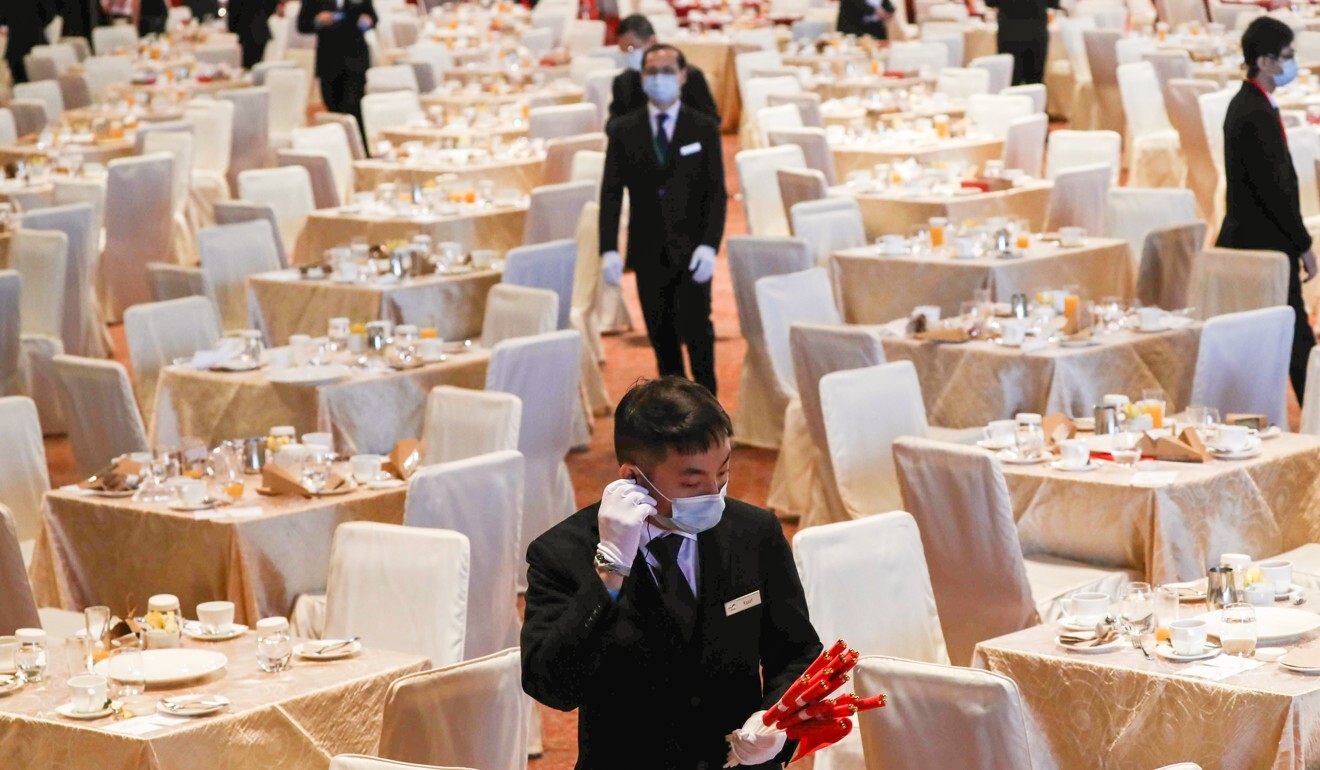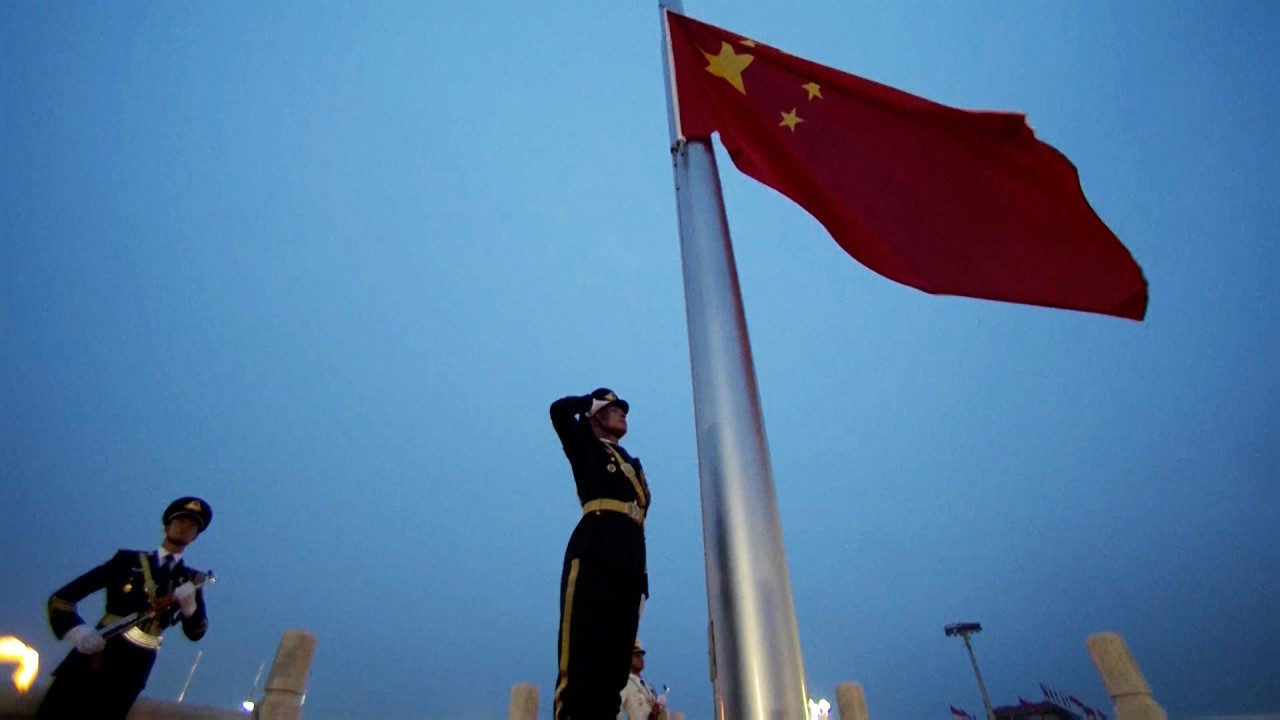
01:42
Hong Kong marks China's National Day with flag-raising
Hong Kong leader Carrie Lam vows to be fearless in face of foreign hostility, says city must rely on Beijing for its economic recovery
- Chief executive hails central government for always being city’s ‘strong supporter’
- Lam says events of past year have shown need for stable society if people’s lives are to get better
“No matter how severe some foreign governments, holding double-standards, are going to level unjustified accusations, or aggressively impose further sanctions, I and my relevant colleagues will continue to discharge our duty to safeguard national security in accordance with the law, without fear or anxiety.”
Lam also said the security law had helped to restore stability, even as authorities braced for potential chaos, after calls for radical acts and planned demonstrations on Thursday.
Police doubled their deployment to 6,000 officers to counter any illegal activities, while the Security Bureau said authorities were aware of online calls for protests in various districts and “the use of violence, including attacking police stations, hurling petrol bombs and illegally blocking roads”.

The city’s economic recovery, meanwhile, would require new approaches, Lam said, and the continued support of the central government.
“To help extract Hong Kong from our economic predicament, we must create new engines of economic growth with the continued support of the central government,” she said.
Subdued ‘golden week’ looms for Hong Kong, as Covid-19 keeps mainlanders away
“The [city’s] government will participate more actively in the drafting of the outline of our country’s 14th five-year plan, and will seek the central government’s support to strengthen and enhance Hong Kong’s status as an international financial centre.”
Lam also praised China for its efforts in curbing the coronavirus, and reviving the economy on the mainland.
“With the exception of China, the epidemic situation around the globe shows no signs of abating,” she said. “[But] by vigorously suppressing and strictly controlling the epidemic, our country has already regained its economic momentum.”
Lam described China’s 3.2 per cent economic growth in the second quarter of this year as “a rare bright spot among major economies”.
“As President Xi Jinping said on September 8, the fight against the epidemic was a race against time and a battle that required resolute courage and unwavering determination,” she added.

Lam thanked Beijing for helping Hong Kong in fighting the pandemic, noting the central government had also supported the city when it was battered by regional or global financial crises in 1997 and 2008, as well as by the severe acute respiratory syndrome (Sars) outbreak in 2003.
Over the past three years, Beijing and Hong Kong had also signed 90 agreements to work more closely in terms of trade, commerce, and technological cooperation, she added.
“The central government always gives us strong backing and helps maintain Hong Kong’s prosperity and stability, whether Hong Kong is facing good times or bad, difficulties or opportunities,” Lam said.
Guests were offered individually packaged sandwiches and biscuits as light refreshments, and also given a box of mooncakes and two flags as gifts.

03:46
Flag-raising opens China’s 71st National Day events
Before the reception, Lam and hundreds of officials, politicians, diplomats and business representatives attended a flag-raising ceremony at Golden Bauhinia Square outside the exhibition centre.
Those who attended included Lam’s three predecessors: Tung Chee-hwa, Donald Tsang Yam-kuen, and Leung Chun-ying. Key mainland representatives, including liaison office chief Luo Huining, foreign ministry commissioner Xie Feng and Zheng Yanxiong, director of the central government’s Office for Safeguarding National Security, were also there.
On October 1 last year, while the flag-raising ceremony was held at the square, officials and guests had to stay in the exhibition centre to watch it on television due to security concerns over the civil unrest that erupted that June, and had grown increasingly violent.
Earlier on Thursday, a group of four protesters led by former lawmaker “Long Hair” Leung Kwok-hung continued their annual ritual of marching from Southorn Centre to Golden Bauhinia Square, and called for the end of one-party rule, and pursuit of justice for the Tiananmen Square crackdown on June 4, 1989.
Arriving at around 7.45am, they also chanted for the release of 12 Hong Kong fugitives captured trying to flee to Taiwan by the Chinese coast guard last month.
Additional reporting by Danny Mok


